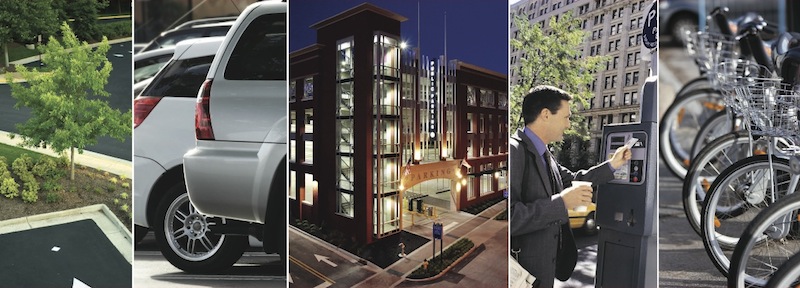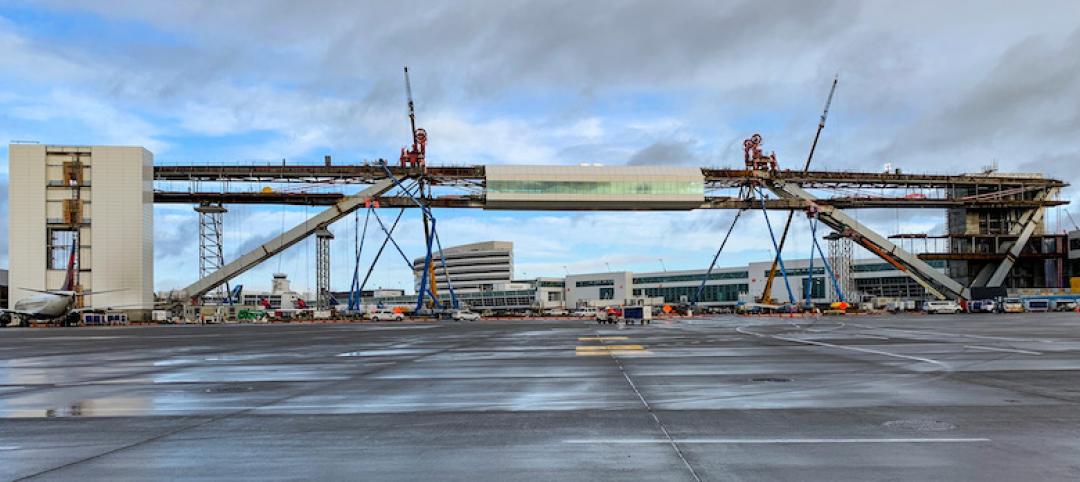According to the results of a just-released survey, the country is undergoing a parking revolution as the industry embraces a variety of new technologies that make it easier for people to find and pay for parking, and for parking authorities to better manage it.
The 2013 Emerging Trends in Parking survey was conducted among members of the International Parking Institute (IPI) and released at the 2013 IPI Conference & Expo, May 19-22. Cities leading in parking innovation include San Francisco; Seattle; New York; Los Angeles; Washington, D.C.; Portland, Ore; Miami; Houston; Boston; Denver; Pittsburgh; and Tampa. Dozens of other cities were identified.
Survey highlights include:
1. Smartphones: Solution to the "space race?"
Topping the list of trends in the $30 billion parking industry is the "move toward innovative technologies to improve parking access control and payment automation," cited by 59 percent of respondents. Another top trend is "real-time communication of pricing and availability to mobile/smart phones" (52 percent).
Both trends are evident in San Francisco's federally-funded SFpark pilot project, which supplies real-time information on the availability and cost of on- and off-street parking, drastically reducing driver circling while hunting for open spaces, congestion, and double-parking.
According to San Francisco County Transportation Authority Park Manager Jay Primus, the city also may be the first in the U.S. to quantify the number of available parking spaces in all public lots, garages, and city blocks. Seattle's new electronic parking guidance system uses dynamic real-time message signs and web information to direct people to available off-street parking at six downtown garages.
2. Payment options continue to expand
The second leading trend is the demand for electronic (cashless) payment, with cities such as Washington, D.C., Pittsburgh, Houston, and Miami, among others, incorporating pay-by-phone programs. Acclaimed as the world's most successful of its type, the D.C. program has earned 550,000 customers and accounts for 40 percent of the city's parking revenues.
About 80 percent of the seven million transactions to date employ smart phones, with payment options that include credit cards, online and mobile money management solutions, and PayPal. Miami and Pittsburgh are among the pioneering cities in incorporating license-plate recognition technology as another means of quick and efficient payment.
3. Taking a smarter business approach
The trends toward "demand for greater parking revenue" (38 percent) and "more public-private partnerships" (24 percent) are demonstrated by Miami's innovative public-private partnerships. Similar programs have been launched in cities such as Houston, where consultants posed the question: "What would a parking program look like if it was managed by Nordstrom?" prompting a focus on parking as an engine for municipal economic development.
4. Green solutions sprouting up
Other notable trends include "collaboration between parking, transportation, and decision makers" (43 percent), "need for improved customer service," (31 percent), and "demand for green/sustainable solutions" (30 percent). Among the technology considered to have the greatest potential in improving sustainability are "guidance systems to enable drivers to find parking faster (and reduce carbon emissions)" (57 percent); "energy-efficient lighting" (55 percent); "encouraging alternative travel" by providing bike storage, car/bike share, access to transit, etc. (42 percent); "accommodating electric-vehicle charging stations: (21 percent), :renewable-energy installations such as solar panels and wind power"; and "innovative water and storm water management systems" (11 percent).
For example, the City of Tampa cut its energy costs in half by upgrading lighting in its parking facilities, joining Miami, Denver, and other cities in offering citywide electric-vehicle charging stations. Miami was among the first U.S. city to partner with a car-share program, which has since taken root in a number of other cities across the country.
Related Stories
Giants 400 | Aug 28, 2020
2020 Giants 400 Report: Ranking the nation's largest architecture, engineering, and construction firms
The 2020 Giants 400 Report features more than 130 rankings across 25 building sectors and specialty categories.
Airports | Jul 28, 2020
CallisonRTKL to design one of the world’s first net-zero airports
Guadalajara Airport Terminal 2 will be designed from the ground up.
Coronavirus | Jul 20, 2020
Student housing amid the pandemic, infection control in buildings, and future airport design on "The Weekly"
Experts from Core Spaces, Bala Consulting Engineers, and Populous were interviewed in the July 23 streaming program from Horizon TV.
Airports | Jun 24, 2020
LaGuardia Airport’s Terminal B officially opens
HOK and WSP USA designed the project.
Airports | Feb 7, 2020
A 780-ft-long pedestrian walkway is positioned over an active taxi lane at Sea-Tac International
It took eight years to plan, design, and construct this bridge.
Airports | Nov 12, 2019
$1B terminal opens at New Orleans International Airport
LEO A DALY designed the project.
Airports | Oct 30, 2019
COX Architecture and Zaha Hadid Architects will design the Western Sydney Airport
The COX/ZHA team was selected from a field of over forty applicants.
Giants 400 | Oct 25, 2019
Top 55 Airport Sector Construction Firms for 2019
Hensel Phelps, AECOM, Turner, Skanska, and PCL top the rankings of the nation's largest airport terminal sector contractors and construction management firms, as reported in Building Design+Construction's 2019 Giants 300 Report.
Giants 400 | Oct 25, 2019
Top 60 Airport Sector Engineering Firms for 2019
Jacobs, Arup, Burns & McDonnell, Ghafari Associates, and Kimley-Horn head the rankings of the nation's largest airport terminal sector engineering and engineering architecture (EA) firms, as reported in Building Design+Construction's 2019 Giants 300 Report.
Giants 400 | Oct 25, 2019
Top 50 Airport Sector Architecture Firms for 2019
AECOM, Gensler, HNTB, Corgan, and HOK top the rankings of the nation's largest airport terminal sector architecture and architecture engineering (AE) firms, as reported in Building Design+Construction's 2019 Giants 300 Report.


















